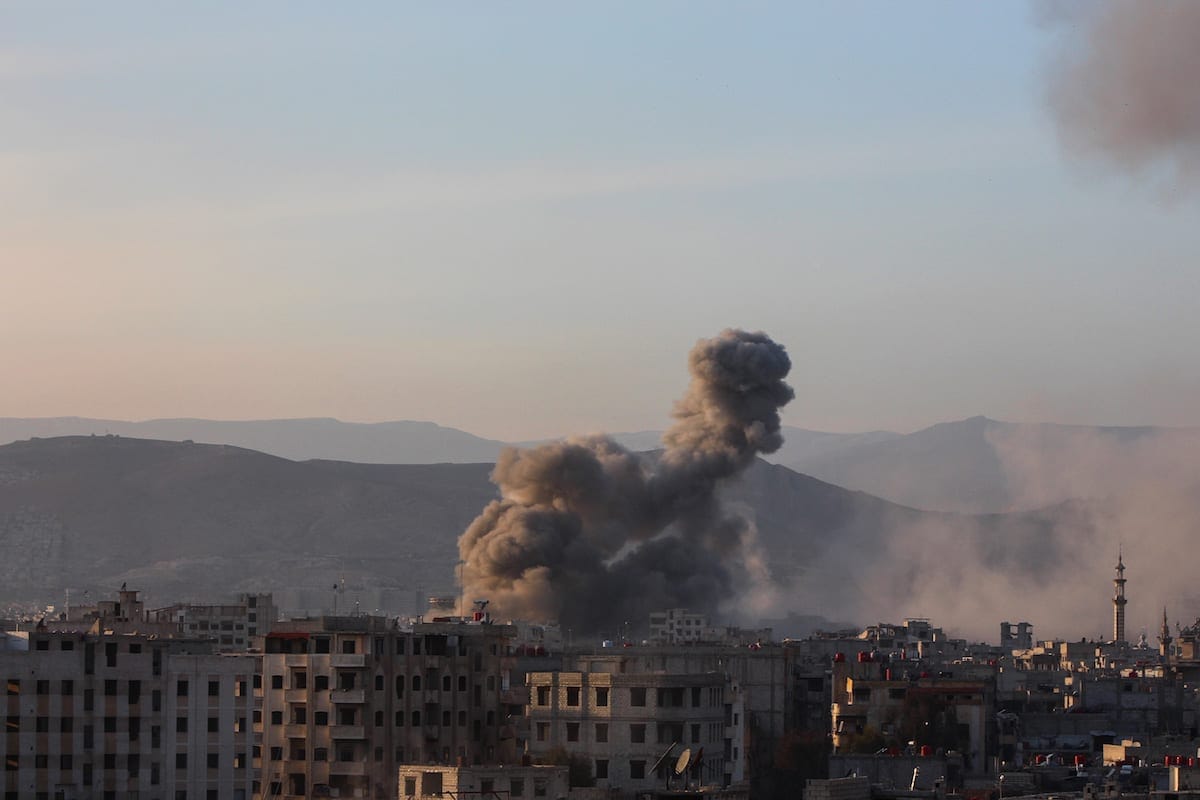Venturing deep into Damascus might entice you with its allure of serene escapes, but it’s crucial to understand the potential risks lurking beneath the surface. This investigative piece sheds light on the stark realities and challenges of Damascus retreats, uncovering the dangers that can overshadow the immersive experience. We’ll delve into the safety concerns, ethical dilemmas, and the lack of transparency that surrounds these retreats, providing a clear understanding of what you might encounter before embarking on your journey.
Unmasking the Hidden Dangers of Damascus Retreats
Damascus retreats: they sound amazing, right? Pictures of peaceful oases nestled among ancient ruins, promising tranquility and self-discovery. But hold on a sec before you book that flight. There’s a hidden side to these retreats, a reality that often gets lost in the glossy brochures.
Safety Concerns: Navigating a Complex Landscape
While things might seem calmer in Damascus these days, it’s important to remember that the country is still grappling with conflict. The situation on the ground can be unpredictable, and some areas are safer than others. In fact, many governments, including the UK, strongly advise against traveling to Syria at all.
Your well-being is about more than just relaxation. Retreats often involve a lot of physical activity and changes in your diet. While this can be great for some, it’s crucial to be aware of your own health conditions and limits. Imagine trekking through ancient ruins – sounds incredible, but it could be risky if you’re not physically prepared.
And then there’s the emotional side of things. Being in a place that’s still recovering from conflict can stir up a lot of emotions, maybe even trigger past trauma for some people.
Insurance and Legal Matters: Avoiding Pitfalls
Here’s the thing: Some of these retreat organizers are small operations and might not have the kind of comprehensive insurance you’d expect back home. If something goes wrong, you could find yourself in a really tough spot.
Plus, there’s the legal side to consider. Participating in tourist activities in a country facing sanctions, like Syria, could land you in hot water. It’s essential to be aware of the potential legal ramifications before you go.
Ethical Considerations: Exploring the Moral Dimension
While the idea of finding peace and healing in Damascus is appealing, it’s worth asking ourselves some hard questions. Is it ethical to support tourism in a region that’s still recovering? Are we benefiting the local communities, or are we contributing to a system that might not be entirely fair?
Essential Preparation: Your Damascus Retreat Checklist
If, after reading all of this, you’re still set on a Damascus retreat, here’s what you absolutely need to do:
Do Your Homework: Seriously, research is your best friend here. Check the latest travel advisories from your government, make sure your visa is sorted, and understand the health and safety risks involved.
Choose Your Retreat Wisely: Not all retreat organizers are created equal. Dig a little deeper and choose an operator with a solid reputation who prioritizes safety and ethical practices.
Be Mindful of the Impact: Remember, you’re a guest in a country with a rich history and culture. Be respectful of local customs, and try to minimize your impact on the environment and the community.
The Bottom Line: Damascus retreats offer a unique experience – there’s no denying that. But it’s a complex issue with risks and rewards that deserve careful consideration. By being informed and prepared, you can make a responsible decision that aligns with your values and ensures your safety.
Damascus Tourist Safety: Unveiling the Risks
We’ve talked about the pull Damascus has – the history, the culture, the sheer age of the place – it’s mesmerizing. But let’s be real, the elephant in the room is safety. Is Damascus a place where you can relax and soak it all in, or is it a no-go zone?
Frankly, governments of countries like the US, UK, and Canada are blunt: Don’t go. They’re worried about things like violence suddenly flaring up, terrorism, and even the risk of being kidnapped. These aren’t empty warnings; they come from a place of serious concern.
Here’s the thing, the Syrian Civil War, which started back in 2011, hasn’t entirely gone away. While Damascus might be calmer than it was, there are still times when things get really rough – bombings, clashes, you name it. The city’s political scene is like a pot on simmer – you never know when it might boil over.
Even setting aside the broader conflict, Damascus has its share of everyday crime. We’re talking things like muggings, robberies, and unfortunately, even worse. Tourists, especially if they seem like they have money, can become targets.
And for women, it’s even more complex. The culture in Damascus is quite conservative, and with armed groups still around, there’s a higher chance of facing harassment or worse. It’s a sad reality that adds another layer of worry.
Then there’s the ethical side of things. Traveling to a place where people are hurting raises tough questions. Are you contributing to a problem, or can your visit actually help? It’s something to think deeply about.
So, where does this leave us? Damascus, for all its beauty, is fragile. It’s a city where danger hides around corners, and the situation can change quickly. While some areas might be calmer than others, the risks remain very real.
If you’re thinking about going, and we get the allure, please, be brutally honest with yourself about the risks. Do your research, talk to people who really know the situation on the ground, and maybe, just maybe, consider waiting until things are more stable. Your safety, and peace of mind, are worth more than any trip.
Unveiling the Dangers of Traveling to Syria
Picking up right where we left off, let’s talk about what it really means to consider traveling to Syria right now. It’s essential to grasp the difficult situation still present in the country. The Syrian Civil War, unfortunately, isn’t a distant memory; it’s an ongoing crisis that has dramatically reshaped everyday life for people in Syria.
Active Conflict and Terrorism: A Grim Reality
- Active Conflict Zones: Syria is still very much in the middle of a civil war. That means the threat of violence is sadly part of daily life. We’re talking about the very real possibility of armed clashes, bombings, and attacks – things no traveler ever wants to encounter.
- Terrorism is a Real Threat: While names like ISIS might feel like distant news headlines, the truth is that these groups are still operating within Syria. They pose a serious danger to everyone, especially anyone they see as outsiders.
- Hidden Dangers Everywhere: Imagine walking down a seemingly peaceful street, but beneath the surface lies the terrifying reality of unexploded bombs left over from the fighting. This is the unfortunate reality in many parts of Syria; danger can be hidden in plain sight.
Infrastructure Breakdown: Essential Services in Crisis
- Healthcare in Crisis: Imagine getting sick or injured – a scary thought anywhere, but in Syria, the healthcare system is incredibly fragile. Hospitals may be damaged or destroyed, essential medicines might be scarce, and finding reliable medical help could be nearly impossible.
- Getting Around is a Challenge: Think about your everyday life – getting from point A to point B. In Syria, simple things like transportation are a huge challenge. Roads and other infrastructure are often damaged, and communication systems, like the internet or phone lines, can be unreliable at best.
- The Struggle for Basic Needs: Even getting access to essential things like food, clean water, and basic necessities can be a daily struggle in many parts of Syria, especially in places directly affected by the conflict.
Personal Safety and Legal Risks: Navigating a Minefield
- The Risk of Detention: Sadly, being a foreigner in Syria, especially someone like a journalist or aid worker, can make you a target. There’s a very real risk of being detained by different groups – sometimes with little to no reason.
- Kidnappings Still Happen: It’s a terrifying thought, but the threat of being kidnapped or taken hostage is another harsh reality in Syria. Areas with a heavy presence of armed groups are particularly dangerous.
- Limited Help from Home: Here’s something important to consider: the U.S. Embassy in Damascus closed down back in 2012. That means getting help if you’re an American citizen in trouble is going to be incredibly difficult – the usual safety net just isn’t there.
The Bottom Line: Traveling to Syria right now is incredibly risky.
* The ongoing conflict and the constant threat of violence make Syria an incredibly dangerous place for travelers.
* Even the most basic necessities – healthcare, transportation, food, and water – are often scarce and unreliable.
* The risk of being caught up in legal issues, detained, or even kidnapped is very real, and getting help if you find yourself in trouble is going to be very, very difficult.
In a nutshell: Syria is a place where the human cost of conflict is tragically visible. While there’s hope for peace and recovery in the future, right now, it’s just not a safe place to visit.
Is Syria Safe Now in 2024? A Realistic Assessment
Let’s be real – Syria is not the ideal vacation spot right now. The simple answer is no, it’s not safe for travel. We’re talking about a country still grappling with a complex civil war, making the security situation about as predictable as the weather in a hurricane.
Even if Damascus, the capital, might seem relatively calm on the surface, remember that looks can be deceiving. This is a place where violence can erupt unexpectedly, bombings are a risk, and the security situation is tense, to say the least.
You know those travel advisories from countries like the US, UK, and Canada? They all say “steer clear” of Syria, and with good reason. They know the score – ongoing war, terrorist threats, and political instability are a recipe for danger, and that’s putting it mildly.
And it’s not just about the fighting. Imagine needing a hospital, finding reliable transportation, or even getting in touch with family back home – these basic services have taken a serious hit because of the conflict. Food, water, and essential supplies? Those are often in short supply, too.
Here’s another thing to keep in mind: foreigners, especially journalists and aid workers, are unfortunately at risk of being detained, even if they haven’t done anything wrong. And kidnapping? That’s still a very real danger, particularly in areas where militant groups hold sway. Adding to the worry, the US Embassy in Damascus closed its doors back in 2012, which means American citizens facing an emergency situation won’t have the usual support system they might expect in other countries.
But beyond all the practical dangers, there’s a moral dimension to consider, too. Traveling to Syria as a tourist right now could unintentionally benefit the Assad regime or even fuel the conflict, even if that’s not your intention. And then there’s the heartbreaking reality of what’s happened to Syria’s incredible historical sites – many are damaged or destroyed. Visiting as a tourist before the country has had a chance to heal and rebuild raises some difficult ethical questions.
So, the bottom line is this: Syria in 2024 is not a safe place to travel. Don’t take any chances with your safety. Pay close attention to those official travel advisories and really think about the potential risks before you even consider booking a trip.
Key Points to Remember
- Safety Concerns: Syria remains a conflict-prone country, and travel advisories warn against travel due to potential safety risks.
- Health Considerations: Retreat activities involve physical exertion and dietary changes, which may pose risks to individuals with health conditions or limited physical preparedness.
- Emotional Impact: Being in a post-conflict area can trigger emotions and potentially resurface past trauma for some.
- Insurance and Legal Implications: Some retreat organizers may not have comprehensive insurance, and participating in tourist activities in Syria could have legal consequences due to sanctions.
- Ethical Considerations: Support for tourism in a recovering region raises questions about its impact on local communities and potential exploitation.
- Before You Go:
- Conduct thorough research on travel safety advisories, visas, and health risks.
- Choose a reputable retreat organizer prioritizing safety and ethical practices.
- Be mindful of your impact on the local culture and environment.













1 thought on “Damascus Retreats: The Untold Truth Behind the Risks”
Comments are closed.